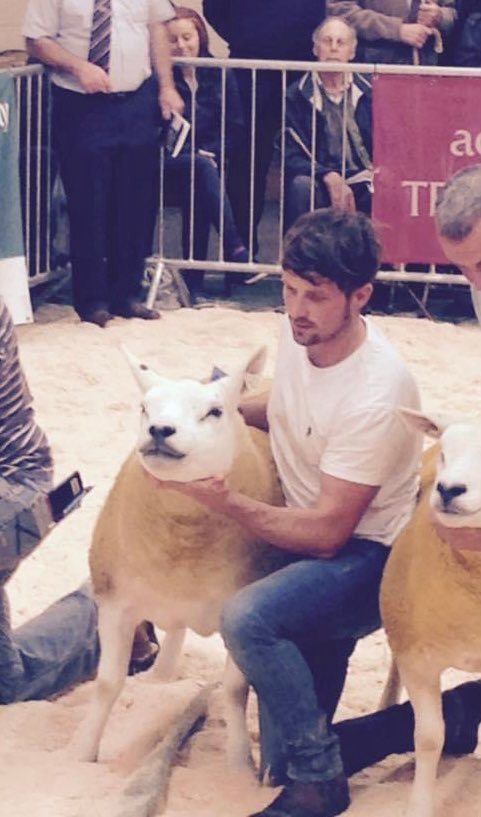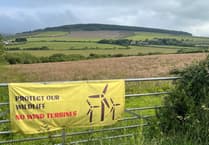The headline says it all: shockingly, many of the island’s sheep farmers have not been paid for their wool clip for the last two years.
It is hard to imagine any other industry where the people who work in it would be expected to put up with not being paid for any length of time, let alone for two years, but this is the case for our sheep farmers.
Worse still there is widespread speculation among the UK sheep farming community that Brannach Olan, the company that the Department of the Environment, Food and Agriculture on the Isle of Man contracted to take our farmers’ wool, is in serious difficulties, though the Examiner understands that they are still trading.
However some farmers in the UK who also sell their wool through the company have reported that they too have not been paid.
So how did this situation arise?
The island’s sheep produce around 120,000kg of wool per year, which all needs to be collected and graded. DEFA on the island used to carry out this process and the wool would then be sent to auctions in the UK. When they took the decision to stop doing it, they contracted Brannach Olann to collect, grade and sell the wool.
Even at the time, this was perhaps a surprising choice given that Andrew Hogley from the more established British Wool told Food & Farming in an interview last year: ‘If they had approached us we would have been happy to provide that service in the Isle of Man. We have eight grading depots around the UK.
‘There’s some nice wool that comes from the island and there is a market for it.’
Even if Brannach Olan is still continuing trading, the two years’ non payment would clearly constitute a breach of contract and would be grounds for DEFA terminating its agreement.
There is a general feeling among farmers that this should be done immediately. They want DEFA to pay farmers what they are owed for their wool and then pursue Brannach Olan themselves for the money.
We also spoke to the Manx NFU who told us: ‘We are seeking an urgent solution especially bearing in mind that this shearing this year’s wool will start at the end of April.’
Tom Kermode from Orrisdale Farm, who has unfortunately become caught up in the sorry state of affairs, has been working with DEFA to try and discover exactly what each farmer is owed.
He explained in a post on Facebook: ‘I was approached by the government’s preferred partner and appointed wool buyer [Brannach Olan] as to whether I would be interested in handling the intake, packing and weighing side of his operation on island for a set period of time. In turn, this would save him travel costs and accommodation that would otherwise arise from using UK personnel.’
Tom’s younger brother Caesar and farmhand Harry carried out all the work which took seven weeks, working seven days a week, and successfully weighed, graded, packed and shipped around 70,000kgs of wool.
Tom took to Facebook because some of blame for the fiasco is unfairly landing at his doorstep, despite the fact that Harry and Caesar were paid only a small amount of wages for their work and he and his family’s farming enterprise are in the same boat as everyone else, having not been paid for their wool.
He went on: ‘Unfortunately there is very little I can personally do as all the weights etc were logged onto [Brannach Olan’s] company laptops and databases which are no longer on island and I would have no authorisation to access them.
‘I’m currently working in conjunction with DEFA towards attempting to obtain the weight readings we took for the company in an effort to at least have some concrete figures of whose wool was what and what weight was received.
‘It’s an unfortunate state of affairs and one I regrettably ended up in the middle of.’

.jpeg?width=209&height=140&crop=209:145,smart&quality=75)

.png?width=209&height=140&crop=209:145,smart&quality=75)
-(1).jpeg?width=209&height=140&crop=209:145,smart&quality=75)
Comments
This article has no comments yet. Be the first to leave a comment.